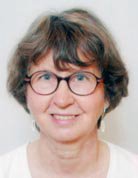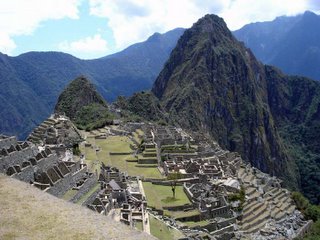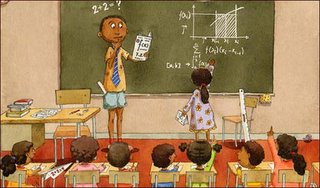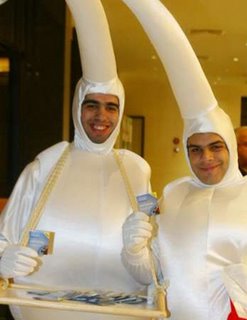Go to the iTunes website.UNESCO and Earth Charter have sponsored the production of CD's that would make good holiday gifts, or indeed good listening all year. There are three (so far). The cost per album is US$9.95.
Not only are they a bargain, but a significant part of the profits goes to good causes.The International Earth Charter/UNESCO musical CD on iTunesThis international musical CD initiative, initiated by the Earth Charter Secretariat and with UNESCO sponsorship, has been coordinated by the French NGO "Pour la Terre". The songs, which reflect the diversity of the world, have been selected for their musical quality and the messages that they transmit.
The international CD features major artists representing the five continents, including Youssou N'Dour, Chico and the Gypsies, Tokiko Kato, Maná, Maria Emilia, Raffi, Rosie Emery, Meiway. Each song revolves around one or more Earth Charter principles. Contributing artists and songs for the international CD are as follows:
- We Are One (Earth Mama)
1. Justicia, Tierra y Libertad (Maná)
2. Xaley Reew Mi (Youssou N> '> Dour)
3. The River (Nicole Redner)
4. Viva la Vida (Chico and the Gypsies)
5. Now is the Time (Tokiko Kato)
6. Turn This World Around (Raffi)
7. Dolphin Teach Us To Play (Rosie Emery)
8. What> '> s That, Habitat? (Remy Rodden)
9. I Like to Recycle (The Young and Elderly Recycling Stand Band)
10. Forgive Me (Clear Blue 22)
11. A Lua Escureceu (Maria Emilia/Tete Espinela)
12. H.I.V. (Daromax & Ethymos)
13. Flying Earth Song (Chen Yuan Yuan)
14. Assez (Meiway)
15. Peace and Love (Zehava Ben)
The international CD is now accessible on:
iTunes U.S site/children'sThe CD can also be accessed by entering UNESCO or Earth Charter in the
iTunes Music Store Search window.
The San Francisco Earth Charter/UNESCO CDs, School Kit and future ConcertAssociation Pour la Terre completed production of a 2 CD set, one directed toward children up to 14 and the other for young people over that age. (There will be an accompanying School Kit which contains the basic philosophy of Sustainable Development and the
Earth Charter principles. The Kit will also have one page devoted to each artist-group, with lyrics, association of meaning of song with Earth Charter principle(s), brief bio, student exercises and relevant web pages. It will be a teaching tool which will be distributed freely by secure FTP download to San Francisco School District teachers for classroom use.)
Sale of this music will benefit UNESCO and the Earth Charter Secretariat, as well as providing royalties for the artist, and positive promotion for all concerned. 25% of the net profit is for SF school music programs (devoted to sustainable development and the Earth Charter principles) and 25% is to be shared equally by UNESCO/Earth Charter/Pour la Terre.
Young People's CD: 1. Grateful Dead (live version of Touch of Grey)
2. Mana/with special SF guest artist (Justicia, Tierra, y Libertad)
3. Mickey Hart (Light Over Shadow)
4. Kitaro
5. Huey Lewis (Small World, Pt. 1) (hard disc only)
6. Ozomatli (Quando Canto)
7. Shana Morrison (More Than I Need)
8. Country Joe (Peace on Earth)
9. Tommy Castro (Anytime Now)
10. Dan Hicks (You Gotta Believe)
11. Maria Muldaur (Never Swat a Fly)
12. Doobie Brothers (People Gotta Love Again)
13. Luna Angel (Unconditional Love)
14. Billy Farlow (The Rain Don't Shine on Me)
Children's CD:1. Wavy Gravy (Basic Human Needs)
2. Rowan Brothers/w David Grisman (Circle of Friends)
3. Linda Arnold (All Kinds of People; One Earth)
4. Banana Slug String Band (What Animals Need)
5. Bonnie Lockhart (Water Cycle)
6. Lisa Atkinson (Is Anybody Listening)
7. Chris Molla (Pick it Up, Stand Up)
8. Gary Lapow (All Kinds of People)
9. Nancy Schimmel ("Playing Winnie-the-Pooh") - song about equality of sexes
(Malvina Reynolds' daughter)
10. Candy Forest ("All in This Together")
11. Blame Sally ("La Llorona") Mexican folk song about importance of home
to children)
12. John Stewart (The Man Who Would Be King)
13. William Florian ("'I'm Declaring Peace")
The CD can be accessed by entering UNESCO or Earth Charter in the iTunes Music Store Search window.






 Wrangel-St. Elias-Glacier Bay/Kluane-Tatshenshini-Alsek
Wrangel-St. Elias-Glacier Bay/Kluane-Tatshenshini-Alsek
